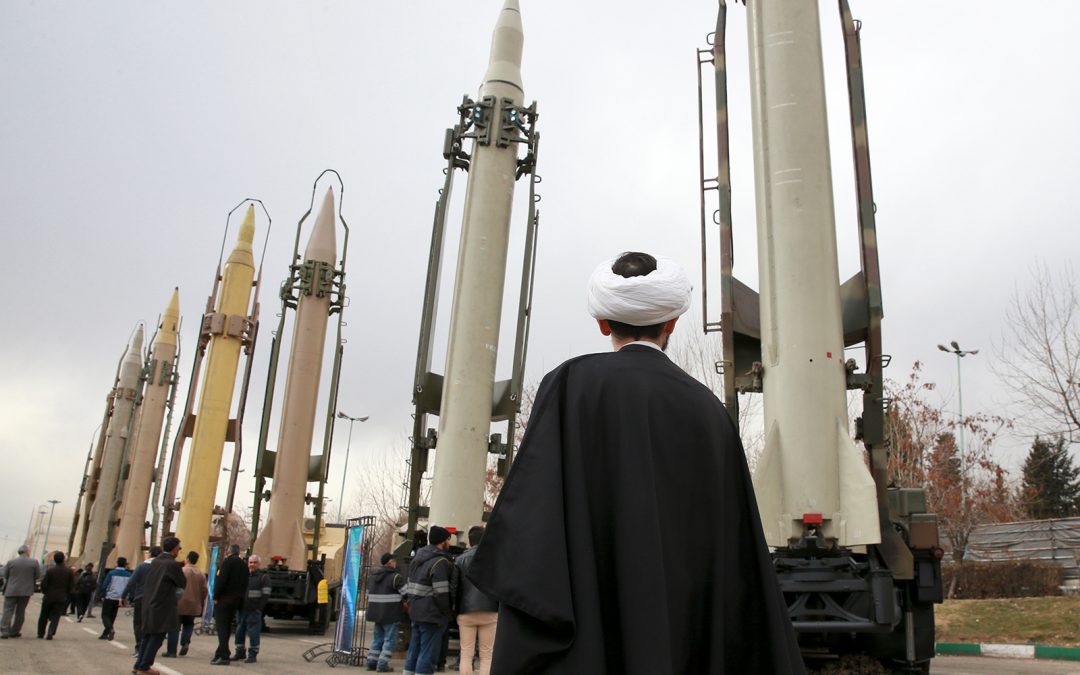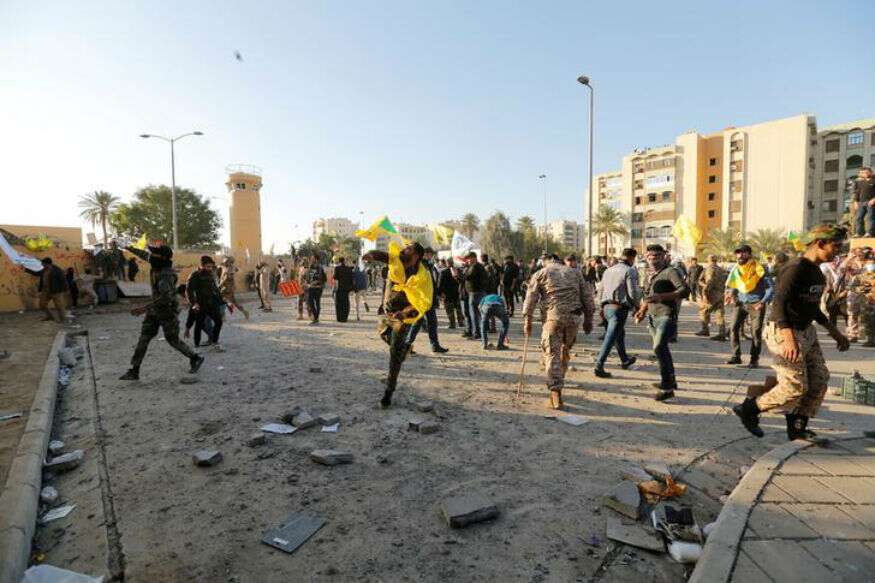Iran struck back at the United States early Wednesday for the killing of a top Iranian general last week, firing a series of surface-to-surface missiles at an Iraqi air base housing US troops and warning the United States and its allies in the region not to retaliate.
The Pentagon confirmed the strike at Ain Assad as well as another at a separate base housing US troops.

A man holds a picture of late Iranian Maj. Gen. Qassem Soleimani as people celebrate in the street after Iran launched missiles at U.S.-led forces in Iraq, in Tehran on Wednesday.
After a U.S. drone strike killed Iranian Gen. Qassem Soleimani last week, America braced itself for the unexpected: The Department of Homeland Security issued an advisory warning that Iran may launch cyberattacks against critical infrastructure. New York’s governor deployed the National Guard to New York City’s major airports.
Those precautions are wise and understandable. But Iran’s missile attacks on bases hosting U.S. troops in Iraq on Wednesday shows that the regime’s retaliation may be more conventional than expected.
Since the 1979 Islamic revolution, Iran has used terrorist groups as proxies to strike at civilians and embassies, attempting to obscure their own responsibility for these attacks.
Now the Iranian regime is signaling a new approach.
Iran’s supreme leader, Ayatollah Ali Khamenei, told his advisers last week that its response should be a “direct and proportional attack on American interests,” according to the New York Times, and that it should be “openly carried out by Iranian forces themselves.”
That said, there is good reason to doubt that Iran’s response will be limited to this attack. Iran has fought its wars through proxies since the 1990s. This was Soleimani’s legacy. From 2003 until his death last week, he built up militias in Iraq, Yemen and Syria, waging an imperial war in the shadows on Iran’s behalf throughout the Middle East.
Some analysts acknowledge that Iran’s military has the capability to do a lot of damage, particularly to U.S. allies such as Saudi Arabia and the United Arab Emirates. But it “is not going to be able to out-escalate the United States,” says Alireza Nader, a senior fellow at the Foundation for Defense of Democracies. Khamenei understands this, he says, and he may be attempting to convey strength at a moment when the regime has been weakened.
Another possibility is that the U.S. drone strike demolished the strategy of plausible deniability that Iran has relied on for so long. It’s not just that Iran’s generals could no longer count on being spared the fate of the terrorists they cultivated and sponsored. The strike signaled a new U.S. strategy that imposes grave costs for Iran’s broader proxy war.
The regime will almost certainly still depend on its terrorist proxies. But Iran’s missile strike shows that it is prepared to engage in direct military attacks to take revenge for Soleimani. The world’s leading state sponsor of terrorism will also rely on conventional warfare
Bloomberg




